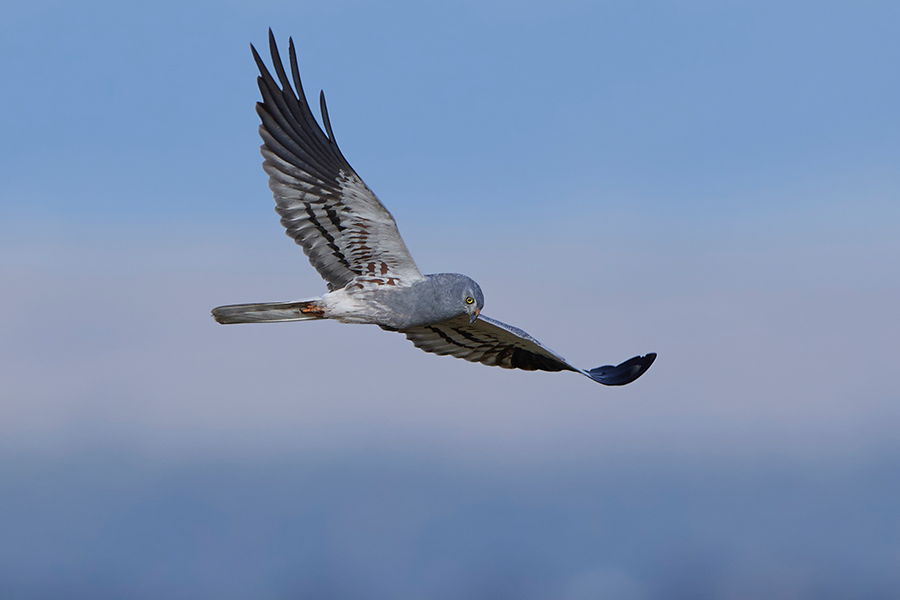Iberdrola collaborates in the Montagu's harrier rescue campaign
- The company collaborates in different regions with conservation associations specialised in this work.
- The aim is to contribute to the improvement of knowledge about this species in the areas of action and to achieve the reduction of non-natural mortality.

Iberdrola España has been carrying out campaigns to monitor and save the nests of the Montagu's harrier (Circus Pygargus) since April, as this is the month in which the courtship begins and whose monitoring allows not only locating of the pairs but also the nesting areas.
In Extremadura, the collaboration with GEA (Grupo Extremeño de Aguiluchos) for the execution of this work has already enabled between 50 and 100 nests of the species to be saved each season in the last three years that the agreement linked to the Núñez de Balboa photovoltaic plant External link, opens in new window. has been in force.
External link, opens in new window. has been in force.
This year, work has also begun in Castilla-La Mancha in four municipalities in the province of Cuenca, in the vicinity of the FV Romeral and Olmedilla photovoltaic projects. In this area, the non-profit association SEMBRIA, based in Cuenca, which specialises in revitalising the rural environment and preserving and enhancing local biodiversity, is in charge of the project.
The main objective of this work is to contribute to the improvement of knowledge about this species in the areas of action and to reduce the unnatural mortality caused by mechanised cereal harvesting and predation for this species that nests on the ground in areas of high cereal fields. The Montagu's harrier is classified as VU - Vulnerable due to its decline in recent years.
These studies include the monitoring of the nesting population in order to locate and protect the nests that pairs of the species establish in the area, delimiting a security perimeter that will remain unharvested.
One of the main threats to the Montagu's harrier is related, above all, to the intensification of agricultural practices, as the species depends on the proper harvesting of cereal and the increased mechanisation of processes and the introduction of early varieties that bring harvesting forward and prevent the chicks from completing their development and leaving the nest before harvesting, means that many of the clutches are lost.
In addition, in order to contribute to the long-term conservation of the species, the implementation of a participatory day aimed at the agricultural sector is included in order to raise awareness of the sector with regard to conservation.
